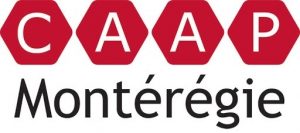Lease in a private seniors’ residence (PSR)
Our mission is to support PSR tenants, their families and their families and loved ones in resolving to resolve disputes and disagreements with their landlords.

CAAP on the lease
As an PSR tenant, you have rights to uphold and obligations to fulfill.
Your RIGHTS as a tenant :
- Living in your home and enforcing your right to stay.
- Refuse a rent increase deemed unreasonable.
- Be treated with respect, dignity and courtesy.
- Enjoy the freedom of your accommodation and common areas.
- Benefit from a well-maintained and repaired home, if necessary.
- Living in an environment that ensures your health and safety.
- Receive the care and services included in your lease.
You also have OBLIGATIONS:
- Pay your monthly rent, including the amount for services included in the lease.
- Notify the owner of any defects or substantial deterioration of the unit.
- Return the property to its original condition at the end of the lease, with the exception of normal wear and tear.

CAAP services for private seniors’ residences
Do you or a loved one have a problem in a private seniors’ residence?
We can support and assist you:
- In the exercise and respect of your rights.
- Preparing to meet with your PSR manager to reach an agreement.
- In the various possible steps before the Tribunal administratif du logement.
CAAP Montérégie can also help seniors in difficult discussions or relationships with landlords.
An important aspect of this component is to inform the general public who, in one way or another, come into contact with seniors who may need information relevant to their well-being in residence.
For further information, please contact us:
Tel.: 450 347-0670, ext. 108
Tel.: 1 800 263-0670, ext. 108 (toll-free)
Contact us
1 800 263-0670
useful information
The Tribunal administratif du logement’s website contains legal information and forms for everything to do with your lease in a private seniors’ residence.
Frequently asked questions
I got a $50 raise, can they give me that much more?
Calculating the rent increase can be a little complicated and depends on a number of factors. However, the tenant always has the option of refusing, in which case the landlord can ask the Tribunal administratif du logement to set the rent.
How can I respond to the proposal to change the terms of the lease?
Within one month of receiving notice of the change from the landlord, you may notify the landlord in writing :
- Or you don’t renew the lease. In this case, you will have to move out at the end of the lease.
- Or you accept the changes. The lease will then be renewed under the new conditions.
- Or you refuse the proposed changes. The lease will then be renewed, but the landlord can apply to the Tribunal administratif du logement (TAL) to set the rent.
Can I cancel my residential lease with three months’ notice?
Not unless there is an agreement with the landlord or a clause in the lease that allows it. The only way to get rid of a lease is to sublet it, or to assign it to someone who will accept the same conditions and services included in the lease.
The owner of the residence refuses to allow me to install window air conditioning. Does he have the right?
No, not if it’s not specified in the lease. In hot weather, it’s important to be able to cool off, especially if you’re a senior. On the other hand, if window air conditioners are prohibited under the lease, you’ll need to find another type of air conditioner that is acceptable to the landlord.
The owner of my residence tells me that if I don’t respect the rules attached to the lease... he will evict me. Is this possible?
No. Only the Tribunal administratif du logement can issue an eviction order.
Can a landlord increase a lease service fee during the year?
A landlord cannot increase the fees for services included in the lease during the year. Like rent, service price increases must be included in the rent increase notice. At each lease renewal, the owner must also provide a schedule of new rates for all services offered by the residence. On the other hand, the owner can offer a service starting at any time of the year, depending on residents’ needs.
Does the Tribunal administratif du logement have jurisdiction to rule on service increases?
Yes. The Tribunal administratif du logement has the authority to set the amount of rent increase including all services included in the lease.
